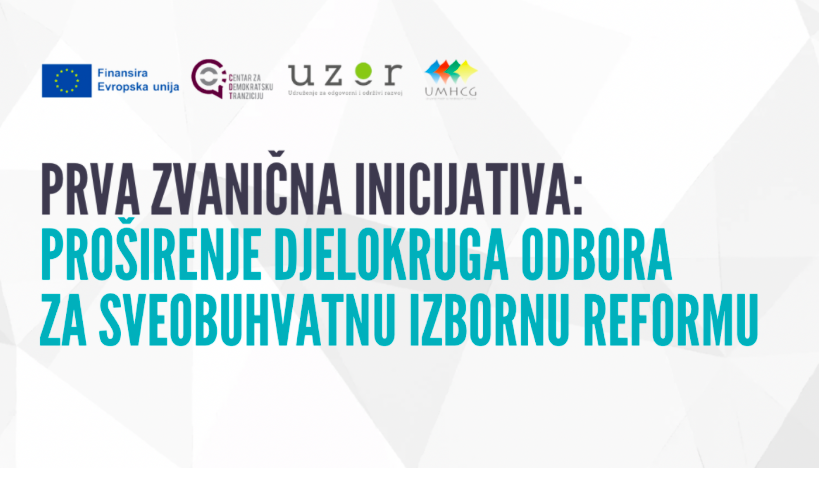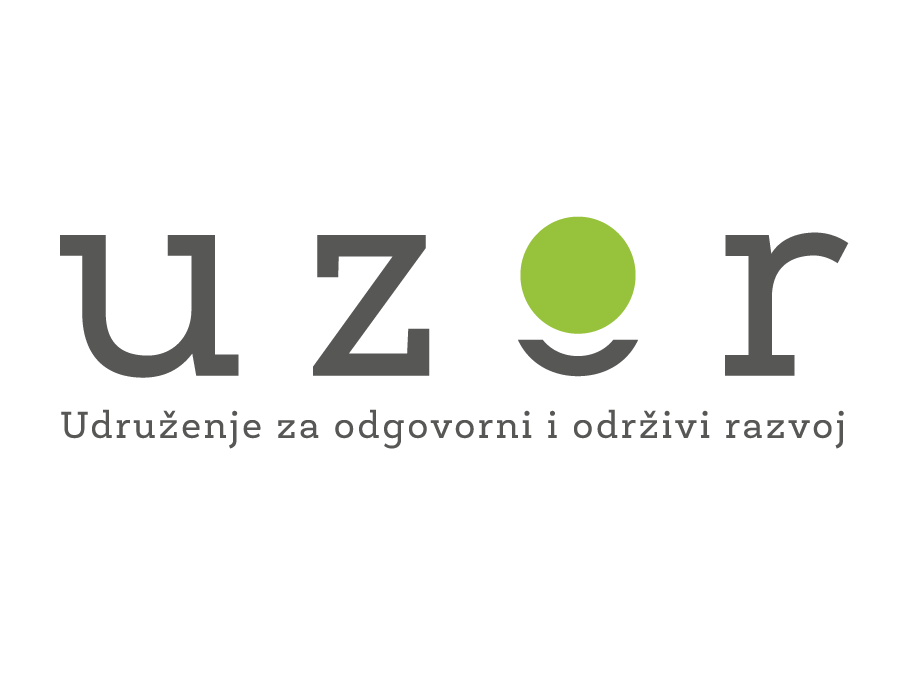The Center for Democratic Transition (CDT), the Association for Responsible and Sustainable Development (UZOR) and the Association of Youth with Disabilities of Montenegro (UMHCG) expressed satisfaction with the start of the work of the Committee for Comprehensive Electoral Reform and pointed to the need to expand the scope of the Committee in relation to the tasks defined in Article 4 of the Decision on the Formation of a Committee for Comprehensive Electoral Reform.
In preparation for giving its contribution to the upcoming reform, the CDT analyzed the observed shortcomings in the legislative framework, and assessed that within the framework of the reform it will be necessary to analyze and to a lesser or greater extent change and refine at least 15 legal texts, which are connected to those elements that make up a quality election ambience.
The goal of the proposal is to use this opportunity to address all perceived problems that burden electoral processes and affect their credibility and legitimacy, and so that the scope of the reform would satisfy this epithet from the name of the Board and be truly comprehensive. We believe that an omission was made when the decision was made when work on the Law on the Election of the President of Montenegro, which is one of the key election laws, was omitted from the Committee’s tasks. This law was adopted in 2007, and in 2023 it was applied for the first time for the second round of elections, where insufficient regulation of the second round was observed, which was treated through only three short articles of the law. The State Election Commission (SEC) resolved these ambiguities and created legal practice through conclusions and instructions. These solutions within the upcoming electoral reform should be used and incorporated into the electoral legislation, in order to complete the legal framework for the second round of elections.
Also, it is necessary that new or improved solutions in all laws from the scope of the Board are accompanied by effective and deterrent sanctions. Bearing in mind the bad practice in which serious violations of electoral rights and rules related to elections in the past remained unpunished or inadequately punished, we believe that the prescription of misdemeanor sanctions will not be enough, and that for a comprehensive reform of the electoral legislation, it will be necessary to open the Criminal Code for changes of Montenegro in the area of criminal offenses against electoral rights.
In accordance with repeatedly repeated international recommendations, it is necessary to significantly improve the electoral law protection system, including constitutional court protection, which is why we believe it will be necessary to prepare an analysis of potential changes to the Law on the Constitutional Court.
Equal media representation is one of the key elements of fair elections, and the provisions regulating this in the Law on the Election of Councilors and Members of Parliament require serious revision. However, in the context of modern challenges, the use of new media and technologies and the need to protect democratic processes from the negative impact of misinformation, in this context it is necessary to consider related changes in media laws – the Media Act, The Law on Electronic Media (the future Law on Audio-Visual Media Services) and the Law on the National Public Broadcaster Radio and Television of Montenegro.
The financing of political parties and election campaigns has been identified by all relevant actors as one of the most problematic aspects of the election process. Supervision of this area is the responsibility of the Agency for the Prevention of Corruption, and the Decision on the establishment of the Board envisages the strengthening of its capacities, professionalism and transparency.
We believe that it is not possible to do this without improving the provisions of the Law on Prevention of Corruption, and it is possible that interventions in the Law on the State Audit Institution in the part of the audit of political entities, as well as accounting laws in the part of financial operations of parties, will be needed.
Finally, in order to improve local democracy, which is guaranteed not only by the conditions for local elections but also by local community elections, we believe that it is desirable to consider changes to the Law on Local Self-Government





